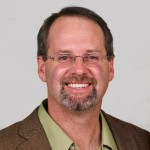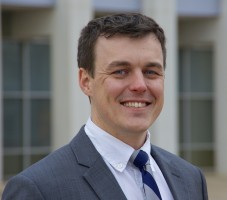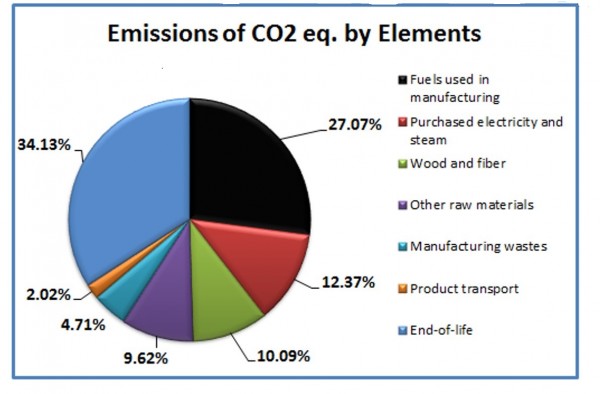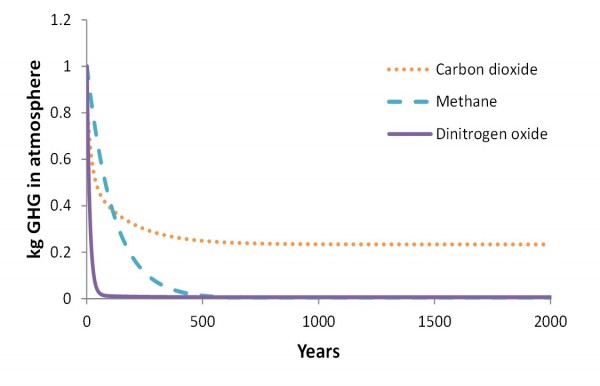Environmental Life Cycle Assessment Hands-on Workshop
Upcoming Events
- This workshop will be held on request of a company with 5 students.
- NC State University, Raleigh, NC
Special Benefits for Course Participants
This unique workshop will provide attendees an overall view of the basic concepts in the fundamental principles of environmental life cycle analysis (LCA) for a product or service. Students will use a hands-on approach to use accepted methodologies and commercial software tools to complete an environmental LCA.
- Get an overview of the Life Cycle Analysis (LCA)
- Learn about LCA stages of products or services
- Perform flowsheeting and develop a life cycle inventory as the basis for an LCA
- Be able to conduct a life cycle assessment with commercial LCA software
- Take away the commercial LCA software loaded on your own computer
Workshop Overview
This workshop will allow students to gain the skills required to perform product and process life cycle assessments using accepted methods and tools. This will be achieved through a combination of lectures, computer laboratory instructions, and student computer problems/projects. Students will be on the computer about 50% conducting LCA steps. Commercial LCA software will be provided to use extensively in the hands on portion of the course.
Who Should Attend
This introductory-level workshop is appropriate for technical and non-technical individuals with a desire for a course to understand and appreciate the fundamen
tal principles of the environmental life cycle analysis for a product or service. This course is for anyone that wants to be able to conduct an LCA.
The workshop is especially beneficial for:
- Any engineers, manufacturing managers, or scientists interested in being able to clearly understand how LCA’s are conducted.
- Marketing, sales and service personnel who deal with questions of “green” products
- Environmental engineers and scientists
- Sustainability managers and product development managers
- Government agency, academia, non-profit agency employees
The workshop will help you answer questions like the following:
- What is the carbon footprint and energy efficiency of a product that is being developed for commercial scale?
- How can I make a decision as to whether a feedstock/synthesis pathway/processing method/product is environmentally preferable?
- How do I communicate the environmental impact of a new product or process to others?
- How does the substitution of a plant-based renewable feedstock for a petroleum based feedstock impact the overall environmental friendliness of a product?
- What is the human and ecological toxicity impact of a given process in the chemical processing industry?
- How does the choice of a processing variable, such as solvent choice or energy source, impact the overall environmental impacts of a product?
Learning Outcomes
Upon successful completion of this workshop, participants should be able to:
- Articulate the value of a Life Cycle Analysis (LCA)
- Approach complex problems with a systems thinking
- Outline the steps to conduct an attributional LCA
- Define the life cycle stages of products or services
- Form a goal and scope statement and system boundary of an LCA
- Construct a flowsheet and perform a life cycle inventory of a process.
- Be able to apply allocation methods for co-products
- Perform an environmental impact assessment associated with a life cycle inventory
- Interpret, critique and communicate LCA results
- Upload datasets, transfer LCA models, export LCA results, and analyze data in a commercial LCA software package, openLCA
- Understand the relationship between software and LCA datasets
- Conduct a life cycle assessment with commercial LCA software
Workshop Materials
Participants will receive the openLCA software and LCA data loaded and runnable on their computer. Participants will receive a set of course notes and access to the lecture files via the internet to supplement the presentations made during the course.
Workshop Instructors

Dr. Richard Venditti
Dr. Richard Venditti’s research focus has been on developing new renewable biomaterials and analyzing the products using technical, economic and environmental life cycle analysis. Dr. Venditti has taught Environmental Life Cycle Analysis (PSE 476/WPS 576) at North Carolina State University every Fall since 2012. The course describes the fundamental concepts of LCA as well as teaches students methods to perform quantitative life cycle analysis. He leads an Environmental LCA research laboratory group, investigating the environmental impacts of advanced materials, chemicals, products and fuels. He has been active in consulting to develop product carbon footprints and in third-party reviewing of LCA studies. He has also acted as an expert witness in environmental focused litigation.
Dr. Venditti graduated from Princeton University in Chemical Engineering in 1993. He currently teaches Environmental LCA, Process Control, Computer Modelling Skills, and a distance paper recycling course. He is a member of the American Center for Life Cycle Assessment, the American Institute for Chemical Engineers, the American Chemical Society, and the Technical Association of Pulp and Paper (TAPPI). Venditti was awarded a Fulbright Specialist Award in the area of Environmental Sciences.

Dr. Jesse Daystar
Dr. Jesse Daystar is the Assistant Director of Corporate Sustainability Programs at the Duke Center for Sustainability and Commerce where he works to deliver impactful research and education programs at the nexus of sustainability and commerce. Drawing on skills in Life Cycle Assessment, sustainability strategy, chemical engineering, paper and pulp engineering, and supply chain logistics & strategy, Dr. Daystar develops sustainability solutions through pragmatic research and applied industrial solutions.
Dr. Daystar has led research and consulting in aspects of product sustainability, biomaterials, biochemicals, and bioenergy focused on identifying environmental tradeoffs, environmental and technical risks, and environmental impacts. This research and consulting has produced publications, sustainability and chemical engineering tools, and certifications for clients including the USDA, DOE, Eastman Chemical and Piedmont biofuels.
Beyond technical research and consulting, Dr. Daystar focuses on the development of educational and training programs in regards to sustainable practices. His teaching experience includes Life Cycle Assessment training and sustainable systems curriculum at both North Carolina State University and Duke University. His support and training of openLCA, a free and open source life cycles assessment software package, has demonstrated his commitment to developing and promoting sustainability solutions necessary for a rapidly increasing and globalized economy.
Dr. Daystar’s prior experience includes sustainable chemical process development and efficiency management program development with the National Council for Air and Stream Improvement, Mead WestVaco, Pesco-Beam Environmental Solutions, and Kemira Chemical.
Dr. Daystar holds B.S. degrees in Chemical Engineering, Paper & Pulp Engineering, and both a M.S. and a PhD in Forest Biomaterials from North Carolina State University.
CEUs
TAPPI will award continuing education units (CEUs) to participants who attend at least 80% of the education sessions and complete a final program evaluation. The Education Department of TAPPI meets the Criteria for Certification established by the Authorized Provider Commission of the International Association for Continuing Education and Training (IACET), 1620 I Street NW, Washington DC 20006.
Workshop Locations
The course presentations and the laboratories will be held on the campus of NCSU, Department of Wood and Paper Science, Biltmore Hall, Corner of Western Blvd and Dan Allen Drive. The course will start at 8:00 AM on Monday and will end on Wednesday at 2:00 pm. The recommended dress code is casual.
Preliminary Workshop Schedule
The five day workshop will include presentations mainly in the morning followed by afternoon sessions involved in hands-on activities of construction an LCA in the openLCA software platform. Participants will work in small groups on a capstone LCA project. The following is a tentative outline of the planned activities.
Note: If a group of students from a company is interested in an introductory topic not covered, prior arrangements can be made to conduct an extra teaching session in the evening on the specific topic at no extra charge.
Day One
8:00 a.m. – 5:00 p.m.
Introduction
Commercial LCA Software Training
Pre course Quiz
Introduction to LCA
Systems Thinking and Ethics
LCA Goal and Scope
Life Cycle Inventory
Commercial LCA Software Training and Activities
Day Two
8:00 a.m. – 5:00 p.m.
Commercial LCA Software Training and Activities
Life Cycle Assessment Environmental Impact
Product Life Cycle Stages
Carbon Footprinting
Commercial LCA Software Training and Activities
Day Three
8:00 a.m. – 5:00 p.m.
Interpretation of an LCA
Sensitivity and uncertainty analysis in LCA
Commercial LCA Software Training and Activities
LCA Group Project Presentations
Final Exam – Course Evaluations
Registration
The registration fee is $1500 per student. This registration fee includes tuition, materials, refreshment breaks, a certificate and one dinner each session. Lodging is not included in the registration fee. The number of students in the course will be limited in size (to 32) for maximum effectiveness and registrations will be accepted in the order they are received. The registration fee should be received no later than two weeks prior to the course starting date. The registration fee cannot be refunded. Substitute participants can be sent, or the fee can be applied to a course on a later date.
Hotel
Participants are responsible for their own hotel arrangements. Suites have been set aside at the Embassy Suites Raleigh/Crabtree Valley, 4700 Creedmoor Road, Raleigh, NC 27612, Phone: 919-881-0000. Lodging is not included in the registration fee. The hotel guarantees room availability up to two weeks before the course. Ask for the special NCSU Hands-on Workshop suite rate. A breakfast and social hour are included with the suite. The suites have a bedroom, living room and kitchenette area. The hotel provides transportation from the airport, has an exercise room/indoor pool and is walking distance away from a major regional shopping mall. Click below for an automated hotel room reservation:
Additional Information
For answers to questions related to course content, please contact Dr. Richard Venditti at 919-515-6185.
General Information
Expenses for continuing education taken to maintain or improve professional skills may be tax deductible. Certain restrictions apply. Check with your accountant for details.


